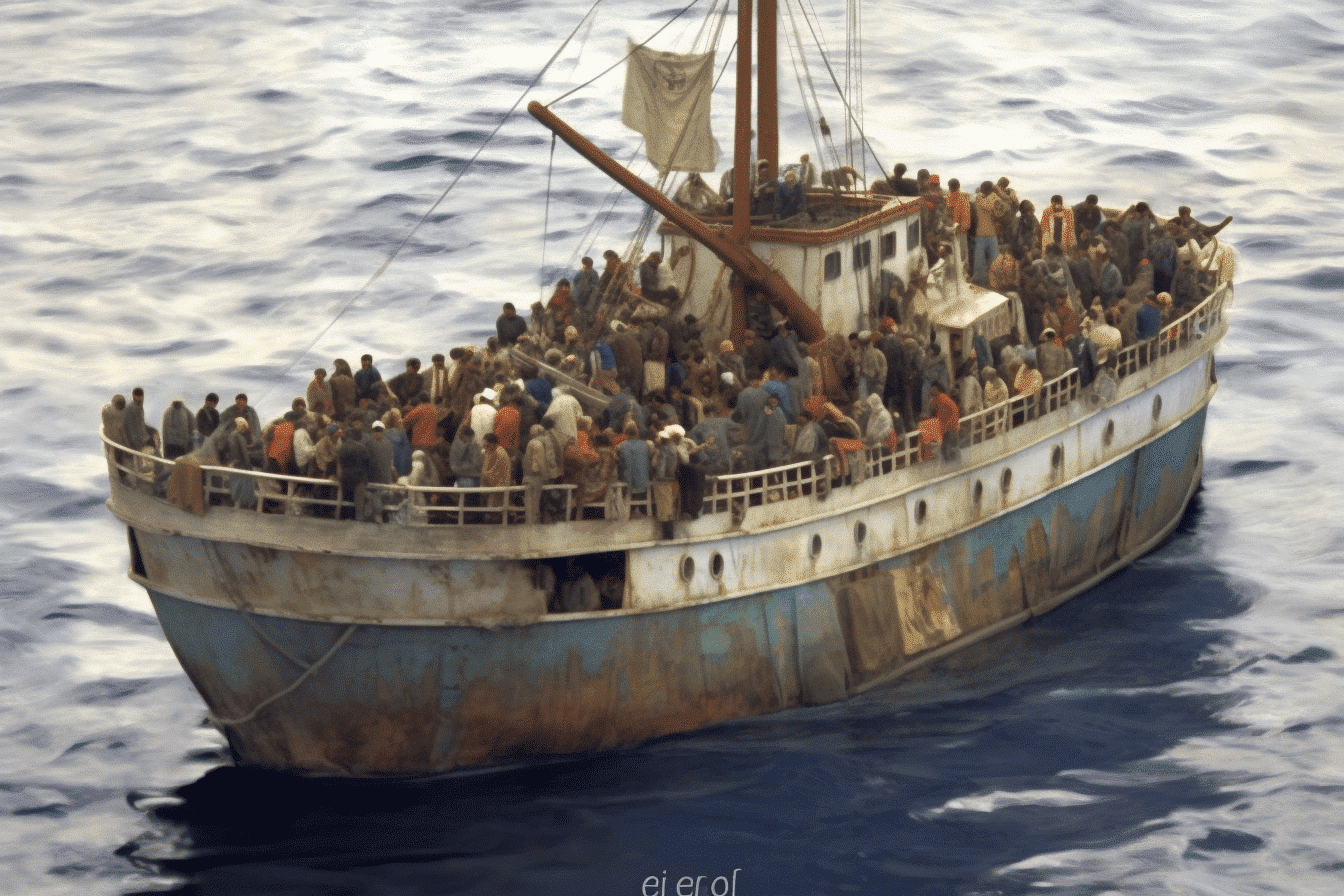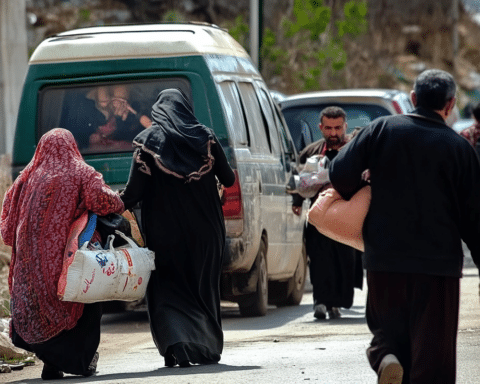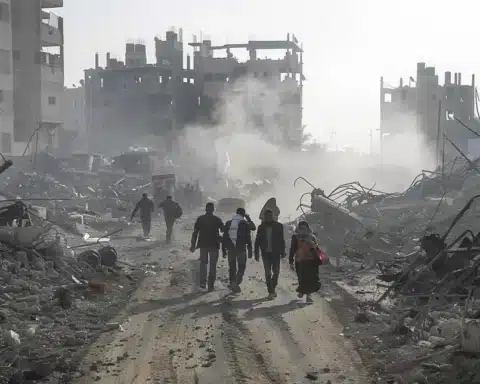A migrant vessel en route to Europe capsized and plummeted beneath the waves off the coast of Greece, resulting in a minimum of 79 deaths and several others feared lost, marking one of the year’s gravest maritime disasters.
An extensive search-and-rescue mission involving the coast guard, navy, merchant ships, and aircraft was mobilized and expected to proceed throughout the night. Precise numbers of potential survivors still in the sea or trapped within the sunken boat remained uncertain, but initial estimates indicated that hundreds might have been aboard.
The incident occurred in international waters about 75 kilometres (45 miles) southwest of Greece’s southern Peloponnese peninsula, leading to the rescue of 104 people. The area’s proximity to the deepest parts of the Mediterranean Sea could complicate efforts to locate the submerged metallic vessel.
Survivors, twenty-five of whom were treated for hypothermia, found refuge in the southern port of Kalamata. Around 70 individuals were provided sleeping bags and blankets in a spacious warehouse, while medical tents were established outdoors for additional care.
The survivors, who received psychological aid, bore the physical and emotional brunt of the ordeal, according to Katerina Tsata, the leader of a local Red Cross volunteer group.
As per Greek coast guard data, the survivors comprised 30 Egyptians, 10 Pakistanis, 35 Syrians, and 2 Palestinians. So far, 79 bodies have been retrieved.
The vessel was headed for Italy, supposedly having set sail from Tobruk in eastern Libya, a nation mired in disorder since the NATO-backed rebellion that ousted and killed Moammar Gadhafi in 2011. This upheaval has empowered human traffickers, who use Libya as a primary launch pad for smuggling people into Europe.
The perilous migration route from North Africa to Italy through the central Mediterranean is recognized as the deadliest globally by the United Nations’ migration body, IOM. Since 2014, over 17,000 fatalities and disappearances have been reported.
Earlier in February, a tragedy involving a Turkish boat sinking off Cutro in southern Italy claimed at least 94 lives, constituting this year’s most catastrophic Mediterranean sinking.
The Italian coast guard first alerted the Greek authorities and Frontex, the European Union border protection agency, of the doomed vessel. However, offers of assistance were repeatedly rejected by the passengers.
As the migrant ship pursued its course toward Italy, the Greek coast guard maintained surveillance. The boat capsized and sank on Wednesday, triggering a massive rescue operation.
Alarm Phone, an activist network providing a hotline for migrants in distress, also reported contact with a troubled boat in the same region. The vessel, reportedly overcrowded and abandoned by its captain, required food and water supplied by a merchant ship.
The past two years have seen increased smuggling operations in eastern Libya involving large wooden boats or aged fishing vessels accommodating hundreds of migrants, mainly from Egypt and Bangladesh. Despite being more robust than inflatable crafts, these boats pose grave risks due to overcrowding.
One of the deadliest shipwrecks in recent history in the Mediterranean occurred on April 18, 2015, when a crowded fishing boat collided with a rescuing freighter off Libya, leaving only 28 survivors out of the estimated 1,100 original passengers.
A sizeable search team, comprising six Greek coast guard vessels, a navy frigate, a military transport plane, an air force helicopter, multiple other ships, and a Frontex drone, continues the search for the sunken vessel.
Greek President Katerina Sakellaropoulou visited the site where the rescued migrants were cared for, and campaign events scheduled for June 25 national elections were postponed. In a separate incident, a yacht with 81 migrants was towed to a port on the south coast of Greece’s island of Crete following a distress call.
In this continuous struggle with the grim reality of migration, countries and humanitarian agencies are fighting not just the rough sea conditions but also the reckless behaviour of human traffickers exploiting the desperate needs of migrants. Solutions must be sought urgently to prevent these deadly incidents at sea and address the root causes of the issue that push people to undertake such hazardous journeys.




